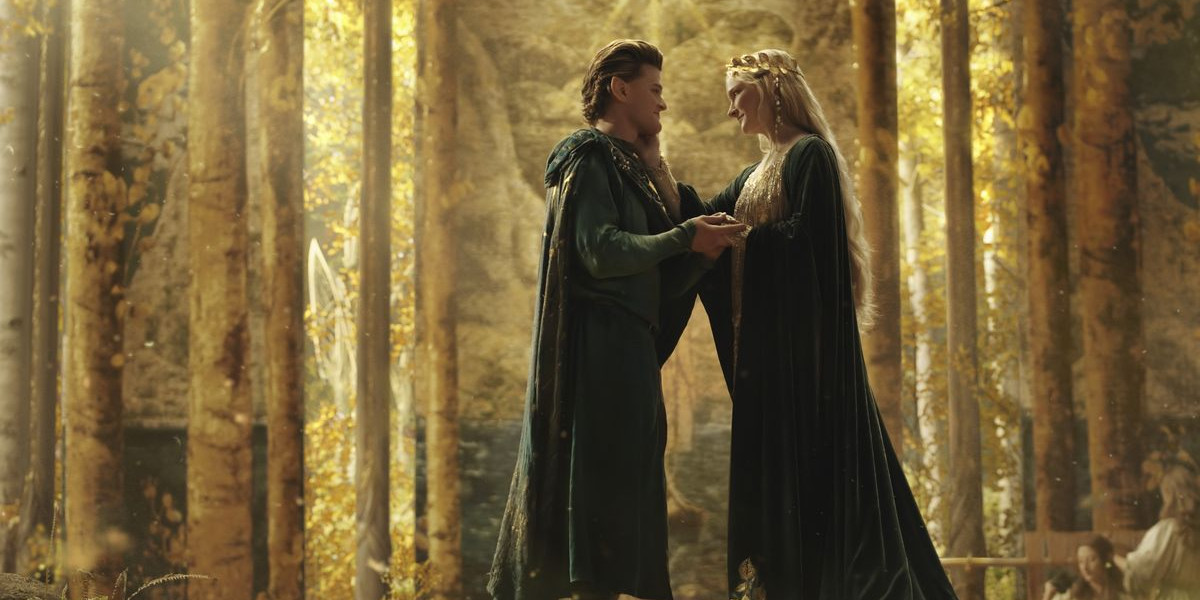The One Genre Tailor-Made for the Big Screen Is Being Relegated to the Small Screen, but Why?

As revealed by The New Yorker, Greta Gerwig will direct at least two movie adaptations of The Chronicles of Narnia for Netflix. Great news, right? Gerwig is a massive talent, and previous attempts at bringing Narnia to life on the big screen weren’t received as enthusiastically as they could have been. (Personally, I quite enjoy them, but that’s a different discussion entirely.) Looks like Netflix might have another winner on their hands.
If I were anyone else, I’d probably be more excited, but as an avid fan of the fantasy genre—high fantasy especially—and as a true believer in the magical cinema experience, Narnia becoming part of Netflix’s extensive catalog feels like a loss. Why does C.S. Lewis’ imagined world need to be relegated to the small screen? Perhaps Netflix might grant Gerwig’s Narnia movies the same treatment as Rian Johnson’s Glass Onion and give fans the chance to watch it in the cinema for a meager handful of days. But I don’t think that’s enough, and Narnia isn’t the only fantasy world to be tied to the small screen in today’s modern media landscape.
Game of Thrones, House of the Dragon, The Witcher, The Wheel of Time, The Lord of the Rings: The Rings of Power, Shadow & Bone, the Willow legacy sequel series: all adaptations of genuinely popular fantasy narratives, and all made for the small screen. Even Harry Potter—which has no business being rebooted any time soon—is being reworked into a TV series for Max. I enjoy watching prestige television from the comfort of my sofa as much as the next person, truly, but it saddens me that all these epic, sweeping tales are solely being made by streamers as opposed to getting the chance to shine on a massive IMAX screen.
Say what you will about The Hobbit trilogy, but it did deliver a sense of cinematic grandeur and magic that is hard to replicate on a wall-mounted TV. And if you’re one of those people who really despised The Hobbit movies, for whatever reason (and I will vehemently disagree with you), remember what it was like to watch The Lighting of the Beacons from The Lord of the Rings: The Return of the King in the cinema? Those sweeping vistas, that ridiculously stunning music? Does that affect you the same way when you watch it on a 50″ screen? My honest answer is no.
This might shock you, but I watched the series finale of Game of Thrones in the cinema, too. It was a special screening; I managed to score tickets for me and some friends, and in we went, into a theater filled to the brim to watch a historic piece of television together. Though we can all agree the finale was … flawed, to say the least, I do remember sitting there wondering how many of Game of Thrones’ epic scenes would have been even more spectacular in a movie theatre—and the frequently terrible lighting certainly would have been less of an issue, too.
I realize that not every single fantasy novel is suited to be adapted into a movie as opposed to a show. I do. But at the moment, aside from the animated The Lord of the Rings: The War of the Rohirrim movie and a number of far-off ill-conceived Tolkien reboots, very few, if any, theatrical high fantasy movies seem to be in the works. That, to me, is a waste of potential.
This isn’t to say that these fantasy shows on Netflix, Prime, Disney+, and HBO don’t have their merits. I watch them all, and they do. There is a reason streamers and studios are fighting to the death to get their hands on popular fantasy IPs. It is an enduring genre with a built-in audience. It is also an expensive one, and I sometimes wonder what they could possibly be getting out of it. The Rings of Power season 1, for instance, cost Amazon a whopping $465 million to produce, yet only 37% of viewers in the U.S. who started the season watched it all the way through, as reported by The Hollywood Reporter earlier this year.
Despite statistics like this, unfortunately, I don’t expect the fantasy streaming trend to change any time soon. Dungeons and Dragons: Honor Among Thieves really was a breath of fresh air, and I truly had a great time watching it. But it generated approximately $200 million worldwide, and on a budget of $151 million, that is ultimately considered a “flop.” It certainly won’t help generate enough enthusiasm for bringing the high fantasy genre back to cinemas in the near future.
Luckily for all of us, our favorite fantasy stories can still be found on the big screen from time to time. Just last year I went to a marathon IMAX screening of the The Lord of the Rings trilogy’s theatrical cuts, and a mere few months ago, I saw Pirates of the Caribbean: The Curse of the Black Pearl live in concert—and it was predictably glorious. But I miss that feeling of watching a new epic fantasy movie in the cinema for the first time, the gorgeous landscapes and high-stakes battles and dragons that make me forget about the real world for a while. It’s just never quite the same when the glare from your window makes it increasingly difficult to see what’s happening on your screen.
(featured image: Amazon Prime)
Have a tip we should know? tips@themarysue.com